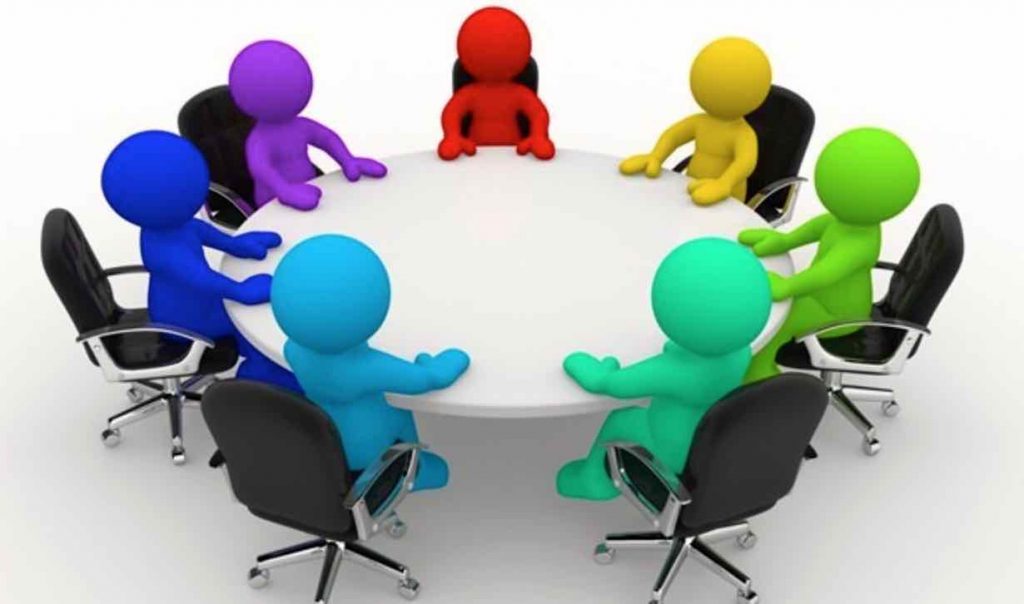
How effective and efficient are your work meetings really? Studies show that you spend around a third of your work time on meetings, but that half of these can be seen as more or less a waste of time…
Meetings are both important and necessary for our professional lives. But they are also a source of irritation and frustration when they are inefficient and conducted poorly. The staff’s attitude to work might even be affected negatively if they have to sit through too many ineffective and seemingly pointless meetings.
Last year, Svenska Möten (a Swedish organisation who assist companies with booking and running conferences), presented a survey on how people feel about their work meetings, for better and for worse… Here are some figures from this survey:
• On average, a member of staff spends around eight hours a week in meetings. Half of these meetings are perceived to be more or less a waste of time. This would mean that four weeks a year are spent in meetings that are quite pointless.
• The situation is even worse for the managers. They use on average 13 h per week on meetings, of which more than 40 % are described as far too inefficient. Managers therefore seem to spend almost six weeks a year in unsatisfactory meetings.
This is of course a problem and one which seems to be growing, which is why this phenomenon in recent years has made researchers want to get to the bottom of what constitutes a good meeting.
Science Daily recently revealed the details of a large American study where scientists have compiled almost 200 different scientific reports on work meetings. The researchers wanted to find out exactly what the recipe is for an efficient meeting. These are some of their findings:
Before the meeting
• Send out an agenda, plenty of time ahead of the meeting. If all the participants know what questions are going to be dealt with in the meeting, they are able to prepare and will therefore contribute to the meeting becoming more efficient. Attach any appropriate additional information the participants may need and they will all come to the meeting with the same information.
• Invite the right people. Think about who should be in the meeting depending on what is going to be discussed and what decisions are going to be made. Make sure the expertise you need is present, by inviting the right people for the task.
• Make it clear why you are having this meeting. What is the purpose and what are the objectives? This will ensure your discussions can focus on solving the problems and make the decisions that will bring you closer to your goals.
During the meeting
• Encourage everyone to have their say. Before you make decisions, solve problems or set new goals, make sure everyone involved is able to speak their mind. Many brains most often think more and better than only a few!
• Invite a sense of humour into the meeting room. Humour and laughter not only make up a meeting culture where everyone is more relaxed, they also substantially improve creativity. And they are a goldmine when it comes to problem solving.
• Do not get stuck in the mud… Complaining and moaning when problems arise is easily done and human, but getting stuck in that mindset is not going to solve anything. When you have established what the problem is (which is usually done quite quickly), move straight on to potential solutions.
• Stay focused on the task at hand. Follow the agenda and make sure you are really discussing the issues you are there to solve. Also make sure the meeting begins and ends on time. Only one thing is more frustrating than a meeting which does not start on time and that is a meeting which never seems to end…
After the meeting
• Send out a summary. Short and concise about what was decided, who is responsible for what, which goals you decided to work with and other things of importance. Also think about informing others who might be affected by what you decided in the meeting.
• Ask for feedback. Encourage the participants to give feedback about the meeting. What was good? What could be done in a better way? Think a bit like a football coach – analyse the match (meeting) and listen to your players (participants).
• Look ahead. How will you follow up what was decided? What happens after the meeting? What progress can you see? What are the immediate results? Long-term?
Did you tick all the boxes here? Congratulations! If not, perhaps this little thought experiment can increase your motivation to really make your future meetings successful:
What do you think would happen if you and your colleagues closed up shop today (beginning of December ) and did not return until mid-January? It is the same amount of time which on average disappears per person and year, because of inefficient meetings in our work places…



